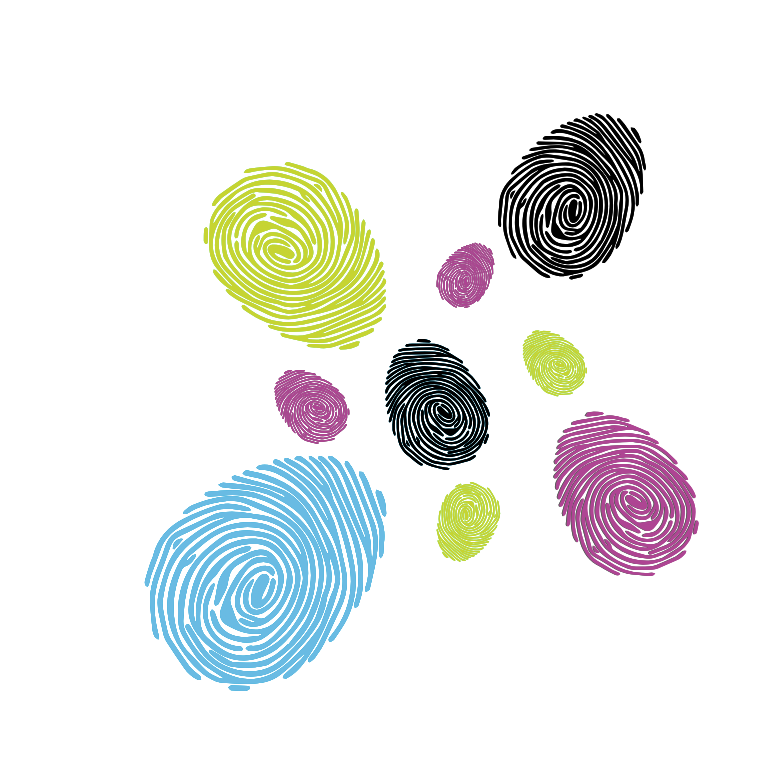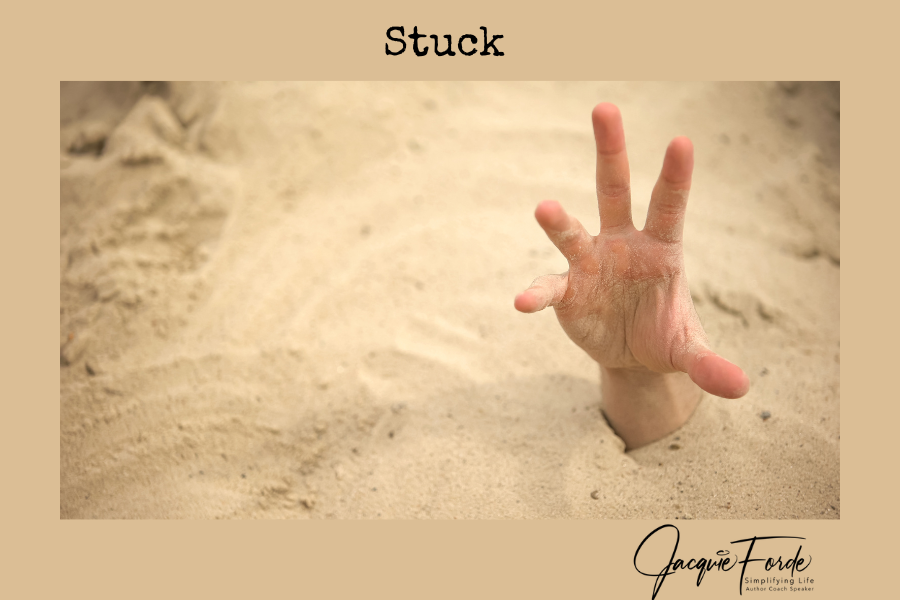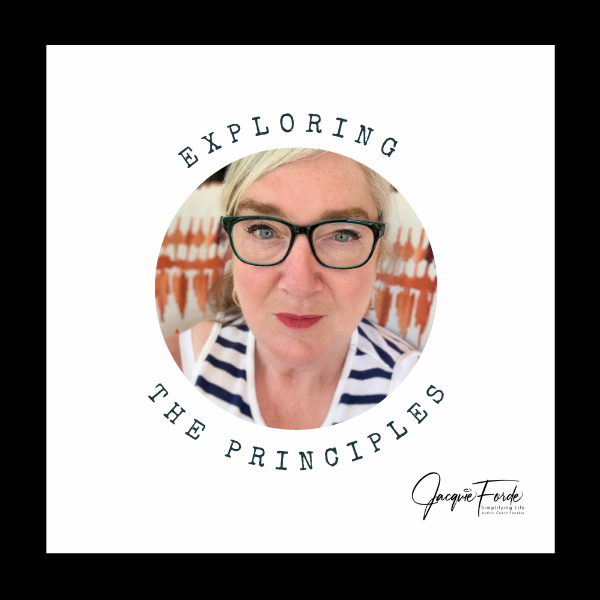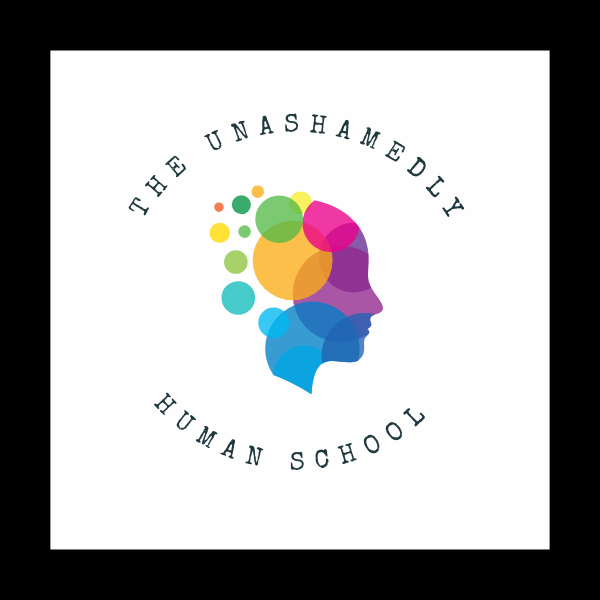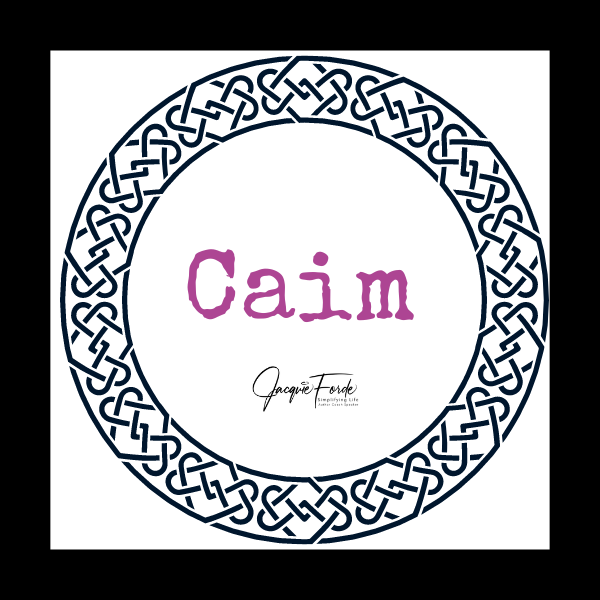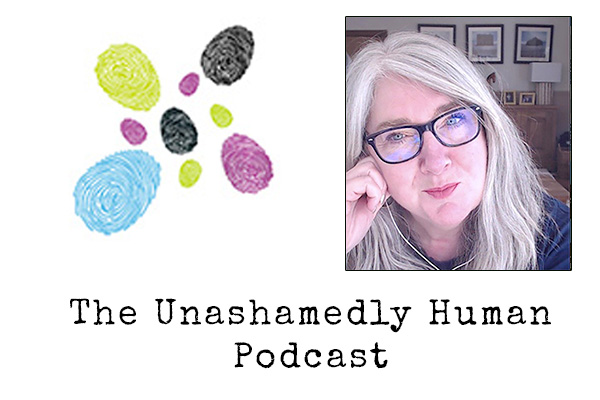Have you ever noticed how the words we use can subtly keep us trapped in our experiences, even when we think we’ve moved on? We often use language like “I’m stuck,” “I’ll never be free of this,” or “This pain is part of who I am.” Without realizing it, these words can reinforce the idea that we are defined by our trauma.
Trauma isn’t just a mental or emotional burden—it lives in the body, and sometimes, the very words we use keep us hypnotized by it. Healing requires not only addressing the body and mind, but also breaking free from the language patterns that hold us back.
The Unseen Impact: Trauma and the Language of Being “Stuck”
Let me introduce you to Clare. She came to me after years of traditional therapy, believing she had “processed” her trauma. But she constantly said things like, “I’m still carrying the weight of the world on my shoulders,” and sure enough, she physically felt that weight in her body—her shoulders were always tight and tense. Clare’s language kept reinforcing the idea that she was stuck in her trauma, and because of that, her body hadn’t let go of it.
Once we began somatic work, combined with addressing her language, Clare’s story started to shift. Instead of saying, “I can’t let this go,” we worked on language that acknowledged her resilience. Her body responded to this new story, and the tension in her shoulders slowly released. She finally felt a sense of lightness—both mentally and physically.
The words we choose matter. They hypnotize us into believing that trauma defines us, that healing is out of reach, or that we’re “broken.” When we change our language and address how trauma is stored in the body, we open the door to real, lasting healing.
Why Talking Therapy Alone Falls Short
Talking therapy helps us gain insight into our thoughts and emotions, but it often focuses on the conscious mind—replaying the same stories, reinforcing the same beliefs, and sometimes, unknowingly, keeping us stuck.
Take Jessica, for example. She had spent years talking about her trauma, but she kept saying things like, “I’m always going to be anxious,” or “My body is permanently wired to panic.” These repeated patterns of thought and language kept her locked in a state of fear and anticipation, even when there was no immediate threat.
Once we started working on both her body’s reactions and the language she used, things shifted. By integrating somatic work with insight from the Three Principles—which explain how our thoughts shape our experience in real time—Jessica began to see that her anxiety wasn’t permanent or inevitable. Her panic wasn’t who she was, but a temporary reaction to her current thinking. As her understanding deepened, her body began to relax, and the language she used about herself became gentler and more empowering.
The Power of Language: How Words Can Keep Us Trapped
Trauma isn’t just an event that happened in the past—it’s a story we tell ourselves over and over. It can become ingrained in how we speak to and about ourselves. Words like “I’m damaged,” “I’m stuck,” or “I’ll never heal” reinforce the idea that trauma is something we can never escape. These phrases become a kind of self-hypnosis, creating the illusion that we are powerless to change. But the truth is, we are always capable of transformation.
Take David, for example. He had been carrying the emotional pain of losing a loved one in a traumatic accident. His language reflected his belief that he was broken by the event. “I’ll never be the same,” he would say. This belief kept the trauma alive in his body—he felt tightness in his chest and a lump in his throat whenever he thought about the loss.
Once David started exploring the Three Principles, he had an insight: his pain wasn’t coming from the trauma itself, but from the story he was telling himself about it, in that moment. He realized that his thoughts, not the event, were creating his current experience. As David began to see his situation differently, his language changed. He stopped saying, “I’ll never be the same,” and started acknowledging his capacity for healing. His body followed, and the physical symptoms that had plagued him for years began to ease.
The Three Principles: Rewriting the Narrative and Embodied Healing
The Three Principles—Mind, Consciousness, and Thought—offer us a deeper understanding of how our experience of life is created. Our feelings don’t come from past trauma or circumstances; they come from our thoughts in the moment.
When we start to see this, the stories we tell ourselves about our trauma start to lose their grip on us. We realize that we’re not broken or stuck—we’re simply experiencing thought, and that thought can change.
For Michael, who struggled with anger and shame after a painful divorce, this understanding was a game-changer. He used to tell himself, “I’ll never get over this,” and that language kept him trapped in the emotions of anger and grief. But as he gained insight into the Three Principles, he realized his feelings weren’t permanent—they were the result of his current thinking. He began to let go of the story that was keeping him angry, and his body began to relax as well.
Embodied Healing: Releasing Trauma from the Body and Breaking Free from Language Patterns
Healing from trauma involves more than just changing our thoughts or words—it requires engaging the body as well. Our bodies often carry the weight of the language we use, and they need to be released physically to truly heal.
Here’s how we can integrate this approach:
- Somatic Therapies: By tuning into the body through somatic experiencing, we can release the physical tension that language patterns reinforce. For Amanda, who often said she felt “on edge” or “locked up,” these physical sensations mirrored her language. Once we worked with her body through somatic techniques, allowing her to breathe and release, she stopped feeling that constant tension and started describing her experience with more openness and freedom.
- Breathwork and Trauma-Informed Movement: Breath is the bridge between the mind and body. Many of us breathe shallowly or hold our breath without realizing it, especially when trauma is involved. Lisa always described her trauma as being “suffocating,” and her shallow breathing reflected that. Through breathwork, she learned to release her body’s tight grip on the trauma, which helped shift her language. She no longer felt “trapped” in her pain, but free to breathe more fully, both physically and emotionally.
- The Three Principles in Action: The Three Principles help us see that our experience of trauma is created in the moment, through thought. When we realize that we are not defined by our past or the language we’ve used to describe it, we can start to rewrite the story. This realization allows the body to relax and let go of the physical tension it’s been holding onto. For Michael, this insight was transformative—not only did his mind become freer, but his body followed, as the anger and physical tension started to dissipate.
- Breaking the Hypnotic Language: We can also begin to challenge the language patterns that keep us stuck. Instead of saying, “I’m broken,” or “I can’t heal,” we can start to use language that reflects our true capacity for resilience. Even small shifts—like replacing “I’ll never get over this” with “I’m in the process of healing”—can create profound changes in both mind and body.
A New Path to Healing
True healing from trauma isn’t just about processing the past—it’s about breaking free from the stories, language, and physical patterns that keep us trapped. By integrating body-based therapies with the insight of the Three Principles, and challenging the language that holds us back, we can finally release the weight of trauma and experience true healing.
If you’re ready to explore how this combined approach can help you break free from the language and physical patterns of trauma, I’d love to support you. Feel free to reply to this email or schedule a call to discuss your next steps toward freedom and healing.
